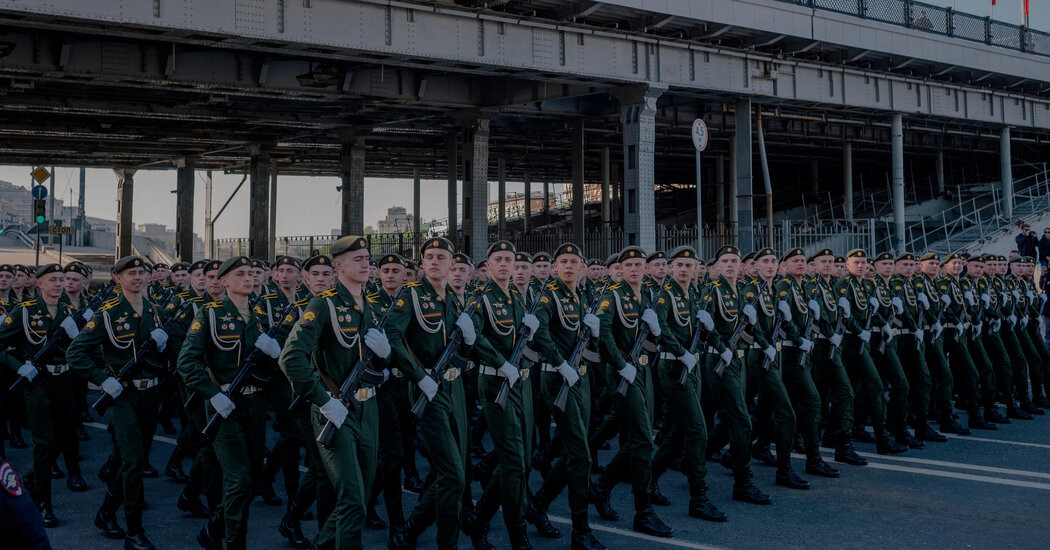

The Kremlin plans a 25 percent increase to more than $145 billion in 2025, a year in which it had intended to cut military spending.
The Russian government intends to increase its defense expenditures by about a quarter next year, according to a draft state budget released on Monday, signaling the Kremlin’s continued determination to allocate vast resources to the war in Ukraine.
Russia’s military spending in rubles has already more than tripled since President Vladimir V. Putin’s decision to invade Ukraine in 2022 and will reach 13.5 trillion rubles next year, a figure unmatched since the heights of the Cold War.
The draft document, submitted for review to the State Duma, the country’s lower house of parliament, calls for more than $145 billion in military spending in 2025, from $116 billion this year. It is a bold sign that the Kremlin anticipates that the war is likely to continue well into next year. In 2023, it had planned to reduce military spending by about 21 percent in 2025, but as the war dragged on, it had to reverse course.
As a rule, Russian lawmakers pass proposed budgets with minor amendments.
The increase means that the Kremlin is allocating more than 32 percent of its state budget to defense, more than to pensions and other social expenditures, health care and education combined.
“We are reaching the point when cannons become more important than butter,” said Alexandra Prokopenko, a former Russian central bank official now at the Carnegie Russia Eurasia Center in Berlin. “The main priority is the ongoing war in Ukraine and the restoration of arsenals and the country’s military potential.”
The Russian government anticipates 2025 revenues to rise to more than $433 billion from $388 billion this year, a result of increased income, corporate and other taxes, and the overall growth of its economy, which, in turn, is being boosted by increased military expenditures.